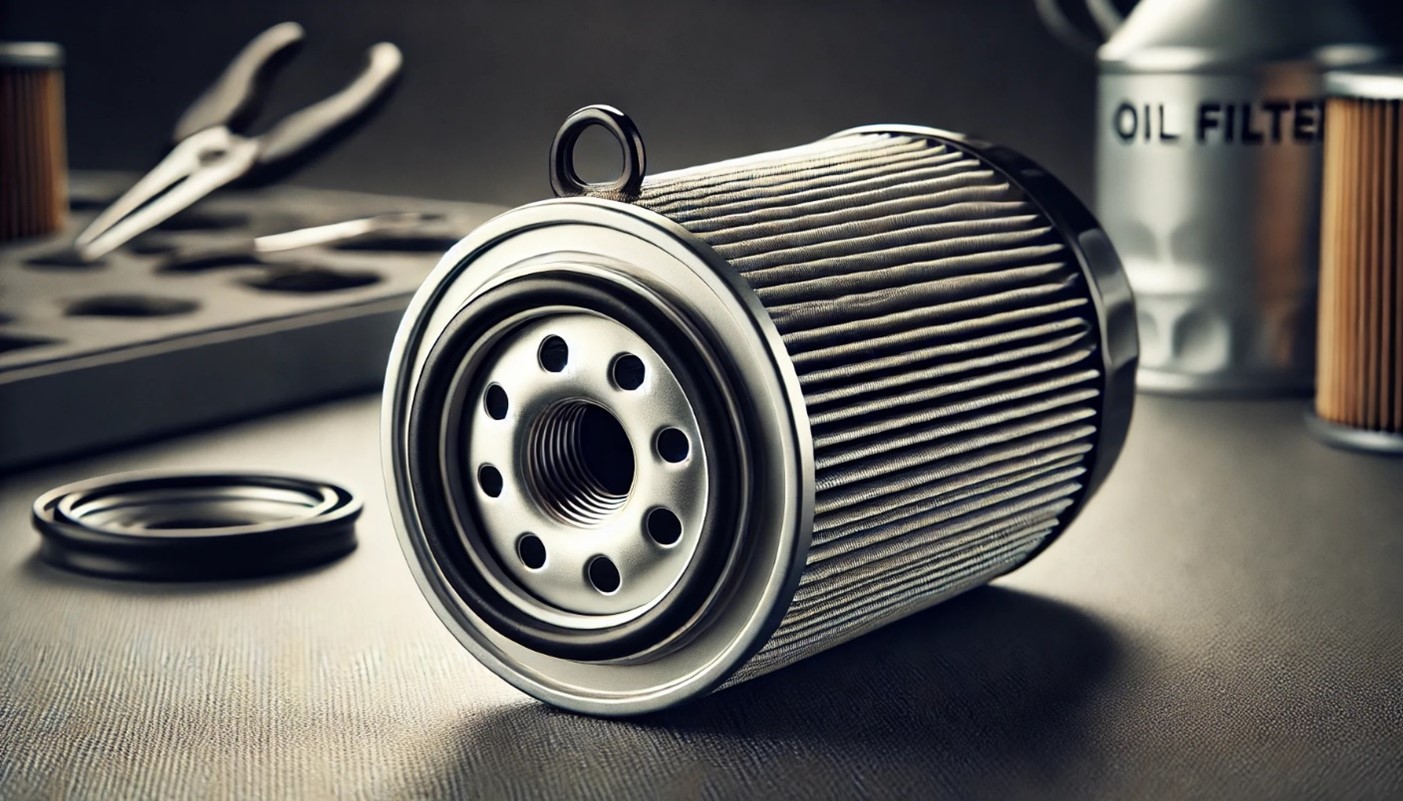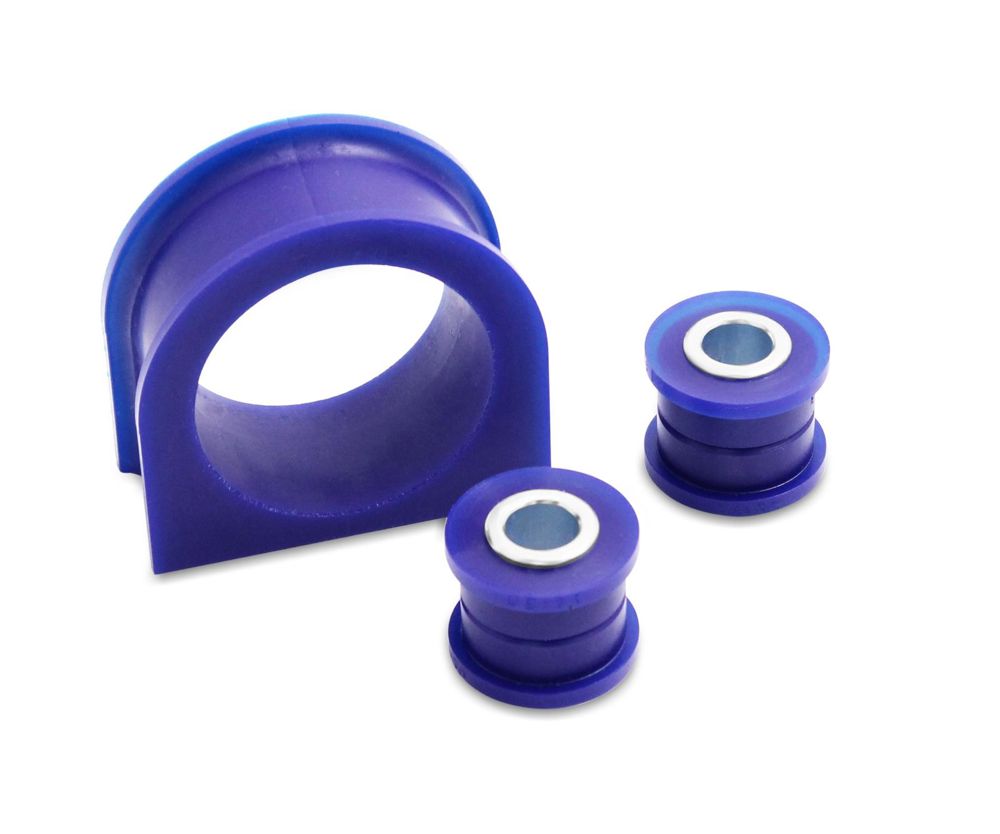
 8th Oct 2024
8th Oct 2024
Understanding Oil Filters - A Simple Guide
While your oil filter might seem like a small, unimportant component in the grand scheme of your vehicle’s engine, it plays a crucial role in keeping it running smoothly and efficiently by removing contaminants from your engine’s oil.
In this comprehensive guide, we'll explore how oil filters work, the various types available, signs that your filter needs to be replaced and how often you should be changing it.
How do oil filters work?
Generally, the oil filter is housed in a cylindrical metal can with a sealing gasket that securely attaches to the engine’s mating surface. The baseplate of the filter contains multiple small perforations which surround a central, threaded hole that connects to the oil filter assembly. Placed inside the can is the filter material, typically made from synthetic fibre.
During operation, the engine's oil pump circulates the oil under pressure through the engine and into the filter, where it passes through the filter material. The filtered oil then flows back through the central hole and re-enters the engine. Meanwhile, potentially harmful debris and particles in the oil are trapped by the filter.
What are the different types of oil filters?
Not all oil filters look the same, nor do they all function at the same level. Each type serves a specific purpose in keeping your engine clean and running smoothly.
Full-Flow (Primary) Oil Filters
Commonly referred to as primary oil filters, full-flow oil filters are widely used by many car-makers. While some filters only clean a portion of the engine’s oil, a full-flow filter is designed to purify all the oil circulating through the engine. This type of filter is particularly useful in cooler temperatures, where extreme weather can cause motor oil to thicken. If a filter is too restrictive, it can hinder the oil flow, risking damage to your engine. Full-flow filters, however, allow oil to circulate more freely, providing all the oil needed for optimal performance even in cold weather.
Cartridge oil filters
Cartridge oil filters are a type of full-flow oil filter. They are easy to use, and when mounted upright, they can be inspected without requiring the oil to be removed. Unlike many other filters, cartridge oil filters typically contain no metal components, making them more straightforward to recycle and an eco-friendlier option.
Spin-on oil filters
Like cartridge filters, spin-on filters are a type of full-flow oil filter. They consist of a steel canister housing a paper element and are great for DIY enthusiasts and mechanics, since they are particularly easy to install, requiring only minimal tools.
Secondary (Bypass) Oil Filters
Some carmakers equip vehicles with a secondary oil filter to work alongside the main full-flow filter. This secondary filter is designed to clean only a small portion, less than 10%, of the oil used by the engine. It traps contaminants that might slip past the full-flow filter, helping to extend the life of the motor oil and providing extra protection for your engine.
Centrifugal oil filters
Centrifugal oil filters are a type of secondary filter that uses centrifugal force to clean your engine oil. As the filter spins, it pushes heavier particles to the outer edge, where they can be removed easily. Centrifugal filters are highly effective in cleaning oil as some can create a force over 2,000 times stronger than gravity, capturing even the smallest contaminants in your car’s motor oil.
Magnetic oil filters
Magnetic filters act as a secondary support to the primary full-flow filter by using magnets to attract and capture metallic particles in the oil. It effectively cleans the oil of metal debris, but does little to remove dust and grime. So, although they are not a standalone solution, magnetic filters complement the performance of other options and unlike most filters, magnetic filters don’t require replacement. Regular cleaning is all that’s needed to maintain their effectiveness.
How often should you change your oil filter?
While it’s best to change the oil filter every time you change your oil, how often you should replace your oil filter depends on your car’s make, model and age.
While older classic cars will typically need a new oil filter around every 3,000 miles or every 3 months, advancements in modern vehicles mean you shouldn’t need to change a newer car’s oil filter until it has driven 6,000 miles, or after 6 months, depending on your driving habits and conditions. Driving in harsh conditions such as dusty environments, extreme temperatures, or frequent short trips is likely to increase the need for more frequent changes.
Neglecting to change your oil filter means it will eventually become packed with sludge and contaminants that cause a restriction and prevent oil from being filtered. This can inflict lasting and costly damage on your engine.
How do I know my oil filter needs replacing?
These are the most common signs that your oil filter is failing and needs to be replaced:
- Oil pressure warning light: If your oil filter is blocked, it can cause a drop in oil pressure, which triggers the oil pressure warning light on your car’s dashboard.
- Engine noise: A lack of lubrication due to an old oil filter can cause increased friction between engine parts, which may lead to an increase in engine noise or in extreme cases an engine knock.
How do I know which oil filter I need?
The easiest way is to find out which one you need is to look at your owner’s manual, which will include lots of information and guidelines for the type and size of the oil filter that is compatible with your vehicle’s engine.
The way you drive can also impact the type of oil filter you require. If you often drive in stop-and-go traffic or in dirty conditions, you may need a filter with a higher filtration efficiency to remove contaminants and impurities from your engine. However, if you mostly drive on motorways and in clean conditions, a standard filter may be sufficient.
Using the wrong filter can lead to inadequate filtration, reduced oil flow and ultimately engine damage. Always refer to the manufacturer’s recommendations. To find the right parts for your car, you can also use our part finder.
If you’re looking for the right oil filter for your vehicle and are not sure which one you need, get in touch with our friendly team by calling 01935 829671.




